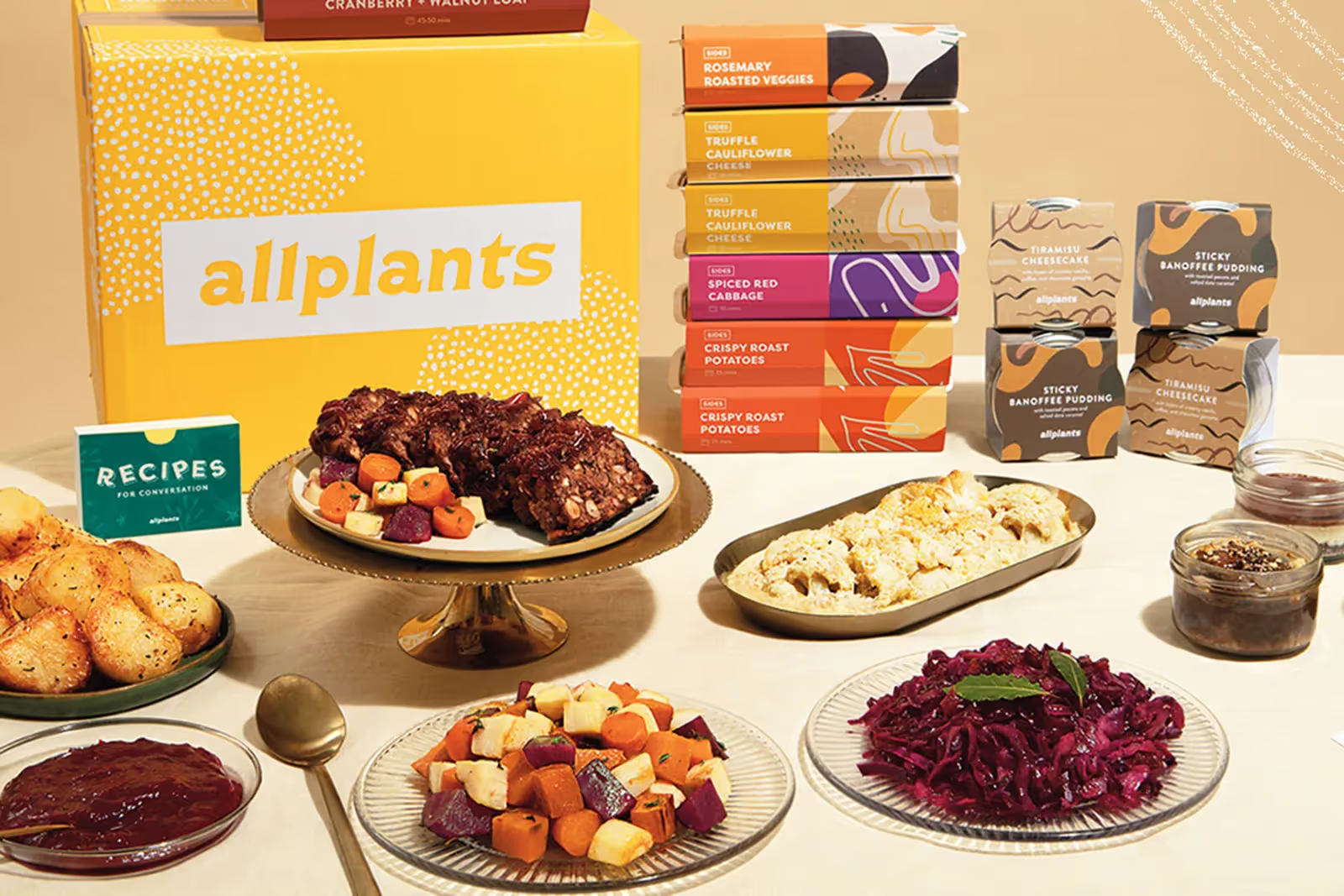A Guide to Digital Marketing for Food Brands in the UK

In today's digital age, having a strong online presence is paramount for any business, especially for food brands in the UK. With the ever-increasing competition and the growing reliance on online platforms, it is crucial to boost your online visibility to reach your target audience effectively. But where do you start? That's where digital marketing comes in. This comprehensive guide will take you through the essential strategies and techniques tailored specifically for food brands in the UK. From optimising your website for search engines to creating engaging social media campaigns, we will delve into the world of digital marketing and provide you with the tools and knowledge to make your brand stand out in the crowded online marketplace. So, whether you're a small local eatery or an established food brand, get ready to elevate your online visibility and attract more customers with our expert tips and insights. Let's dive in and unlock the potential of digital marketing for your food brand!
Understanding the Importance of Online Visibility for Food Brands
In today's digital landscape, having a strong online presence is crucial for food brands in the UK. With consumers increasingly turning to the internet to discover new restaurants, order food online, and read reviews, it's essential to be visible where your potential customers are. Online visibility not only helps you reach a wider audience but also allows you to showcase your brand's unique offerings and build trust with your customers. By establishing a strong online presence, you can gain a competitive edge and position your food brand as a go-to choice for food enthusiasts. To achieve this, you need to leverage the power of digital marketing strategies that are tailored specifically for food brands in the UK.
Key Digital Marketing Strategies for Food Brands
To boost your online visibility and attract more customers, it's important to implement key digital marketing strategies. These strategies will help you optimise your website, reach your target audience, and engage with them effectively. Let's explore some of the most effective digital marketing strategies for food brands in the UK.
Search Engine Optimisation (SEO) for Food Brands
Search engine optimisation (SEO) is the process of improving your website's visibility on search engine results pages (SERPs). By optimising your website for relevant keywords and providing high-quality content, you can increase your chances of appearing higher in search results. For food brands in the UK, it's crucial to optimise your website for local search queries, as most customers search for nearby restaurants or food delivery options. This can be achieved by including location-specific keywords in your website's content, meta tags, and URLs. Additionally, optimising your website's loading speed, mobile responsiveness, and user experience can further enhance your SEO efforts.
Pay-Per-Click (PPC) Advertising for Food Brands
Pay-per-click (PPC) advertising is a paid advertising model that allows you to display ads on search engine results pages or other websites, and pay only when someone clicks on your ad. PPC advertising can be highly effective for food brands in the UK, as it allows you to target specific keywords, demographics, and locations. By running targeted PPC campaigns, you can increase your brand's visibility, drive traffic to your website, and generate leads. To make the most out of your PPC campaigns, it's important to conduct thorough keyword research, create compelling ad copy, and continuously optimise your campaigns based on performance data.
Content Marketing for Food Brands
Content marketing involves creating and distributing valuable content to attract and engage your target audience. For food brands, content marketing can take various forms, such as blog articles, recipes, cooking tips, and videos. By creating high-quality and relevant content, you can establish your brand as an authority in the food industry, build trust with your audience, and drive organic traffic to your website. Additionally, content marketing can help you showcase your unique offerings, share customer stories and testimonials, and provide valuable information that resonates with your target audience.
Social Media Marketing for Food Brands
Social media platforms offer an excellent opportunity for food brands to connect with their target audience, showcase their offerings, and build a loyal customer base. By creating engaging and visually appealing content, such as mouth-watering food photos, recipe videos, and behind-the-scenes glimpses, you can captivate your audience and generate interest in your brand. It's important to identify the social media platforms that are most popular among your target audience and tailor your content accordingly. Additionally, running targeted social media ad campaigns can further amplify your reach and drive traffic to your website or physical locations.
Influencer Marketing for Food Brands
Influencer marketing involves collaborating with popular social media influencers or bloggers to promote your brand or products. By partnering with influencers who have a significant following and influence in the food industry, you can reach a wider audience and build credibility for your brand. When choosing influencers, it's important to consider their relevance to your brand, their engagement rates, and their authenticity. Collaborating with influencers can take various forms, such as sponsored posts, product reviews, or hosting events. By leveraging the power of influencer marketing, you can tap into their existing audience and generate buzz around your brand.
Email Marketing for Food Brands
Email marketing is a direct and effective way to engage with your existing customers and nurture potential leads. By building an email list of interested subscribers, you can send them personalised offers, exclusive discounts, and updates about your brand. Email marketing allows you to stay top-of-mind with your customers, encourage repeat purchases, and drive traffic to your website or physical locations. To make the most out of your email marketing efforts, it's important to segment your email list based on customer preferences and behaviour, craft compelling email content, and monitor the performance of your campaigns.
Online Reputation Management for Food Brands
In the age of online reviews and social media, managing your brand's online reputation is crucial. Negative reviews or comments can significantly impact your brand's reputation and deter potential customers. It's important to actively monitor online platforms for mentions of your brand, respond promptly to customer feedback, and address any concerns or issues. By providing exceptional customer service and resolving problems in a timely manner, you can turn negative experiences into positive ones and build a strong reputation for your brand.
Website Design and User Experience for Food Brands
Your website serves as the digital face of your food brand. It's important to ensure that your website is visually appealing, easy to navigate, and provides a seamless user experience. A well-designed website can help you showcase your offerings, provide information about your brand, and drive conversions. It's crucial to optimise your website for mobile devices, as a majority of consumers now use their smartphones to search for restaurants or order food online. Additionally, incorporating features such as online ordering, table reservation, and customer reviews can enhance the user experience and encourage customer engagement.
Measuring and Analysing Digital Marketing Efforts for Food Brands
To ensure the success of your digital marketing campaigns, it's important to measure and analyse their performance. By tracking key metrics, such as website traffic, conversion rates, social media engagement, and customer feedback, you can gain valuable insights into the effectiveness of your strategies. This data can help you identify areas for improvement, optimise your campaigns, and allocate your marketing budget more effectively. Utilising tools such as Google Analytics, social media analytics, and customer feedback platforms can provide you with the necessary data to make informed decisions and drive better results.
Tips for Implementing a Successful Digital Marketing Strategy for Food Brands in the UK
To ensure the success of your digital marketing strategy, here are some tips to keep in mind:
1. Define your target audience: Understand who your ideal customers are and tailor your digital marketing efforts to resonate with their preferences and interests.
2. Conduct thorough market research: Stay up-to-date with the latest food industry trends, consumer preferences, and competitor strategies to identify new opportunities for your brand.
3. Set clear goals and objectives: Define what you want to achieve with your digital marketing efforts, whether it's increasing website traffic, generating leads, or boosting online sales.
4. Create a cohesive brand identity: Develop a strong and consistent brand identity that reflects your brand's values, personality, and unique offerings. This will help you stand out in a crowded marketplace.
5. Monitor and analyse your performance: Regularly track key metrics and analyse the performance of your digital marketing campaigns. Use this data to identify areas for improvement and optimise your strategies.
6. Stay active on social media: Engage with your audience on social media platforms by regularly posting high-quality content, responding to comments and messages, and running targeted ad campaigns.
7. Encourage user-generated content: Leverage the power of user-generated content by encouraging your customers to share their experiences, reviews, and photos on social media. This can help build trust and credibility for your brand.
8. Stay updated with SEO best practices: Keep up with the latest SEO trends and best practices to ensure your website ranks higher in search engine results pages and attracts organic traffic.
9. Build relationships with influencers: Collaborate with influencers and bloggers who have a strong following and influence in the food industry. This can help amplify your brand's reach and generate buzz around your offerings.
10. Provide exceptional customer service: Deliver exceptional customer service both online and offline. Respond promptly to customer feedback, address any concerns or issues, and go above and beyond to exceed your customers' expectations.
Conclusion
In today's competitive digital landscape, boosting your online visibility is crucial for food brands in the UK. By implementing effective digital marketing strategies, such as SEO, PPC advertising, content marketing, social media marketing, influencer marketing, email marketing, online reputation management, and website design, you can elevate your brand's online presence and attract more customers.
Additionally, by measuring and analysing the performance of your digital marketing efforts, you can continuously improve your strategies and drive better results. With the right tools, knowledge, and implementation, you can unlock the full potential of digital marketing and make your food brand stand out in the crowded online marketplace. So, get ready to boost your online visibility and take your food brand to new heights!

.avif)



